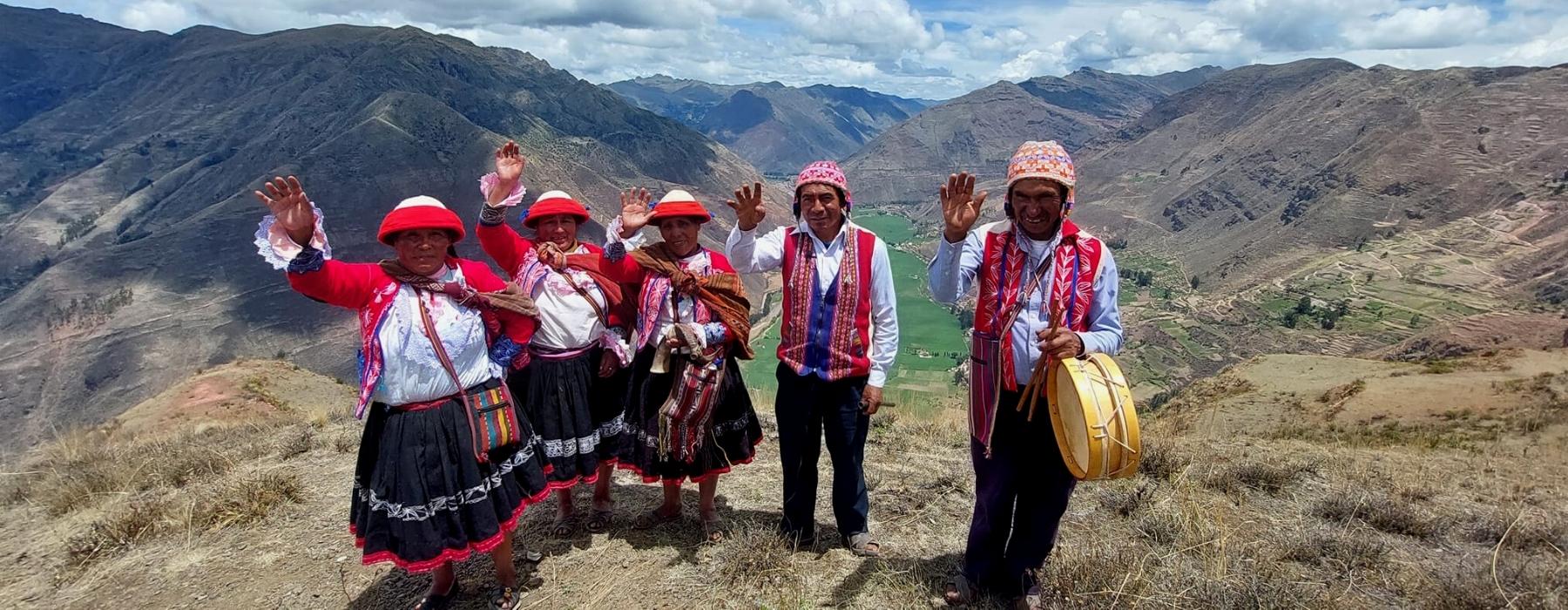
Sacred Valley of the incas Communities are home to the living culture of Cusco. If you want to be part of this living culture, the inhabitants of the valley are ready to share their work with you and allow you to experience their daily life for yourself.
The Sacred Valley of the Incas is the spectacular and historic valley where the runas (human beings) of the Tahuantinsuyo (Inca nation) lived, who built impressive works of agricultural engineering admired throughout the world. Located a short distance from Cusco, it is a spectacular valley located in the Andes mountain range in South America. The valley runs parallel to the meandering Urubamba River, also known as the Vilcanota River or Willkamayu River, and is just 15 km (9 miles) north of Cusco.
This beautiful valley between the towns of Písac and Ollantaytambo was greatly admired by Peruvian ancestors due to its special conditions: beneficial climate, fertile land, and the presence of the Willkamayu River (sacred river). The runas, with the incentive of the qualities granted by nature, built architectural works linked to agriculture, which was the main activity in ancient Peru. Here, the Incas found the perfect place to record their intrinsic knowledge of hydraulic engineering and their deep love for nature. It is for this reason that the aqueducts, the irrigation channels and the channels of the Willkamayu River, as well as the impressive platforms, the astronomical-scientific observation centers and the centers of spiritual activity, are still preserved. The sacred valley of the incas is a rich agricultural area that supplies the city of Cusco with its production of corn, fruits and vegetables.
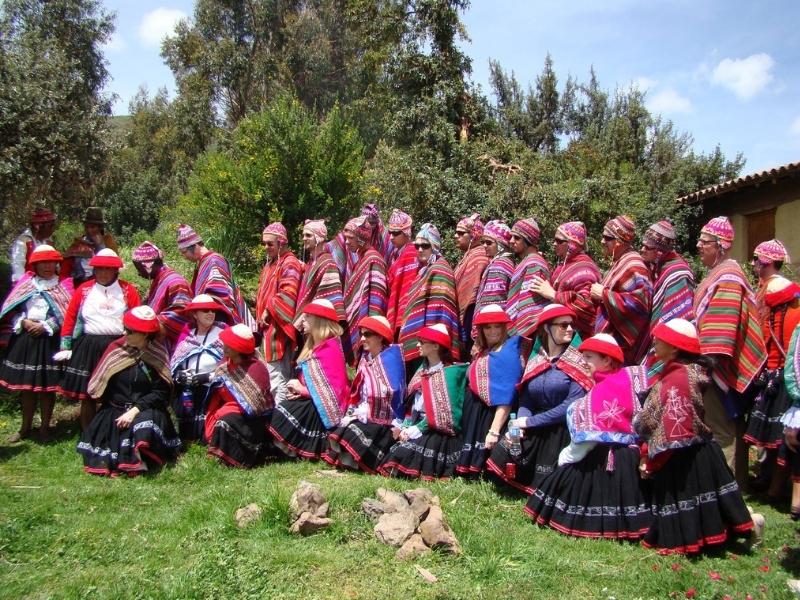
The communities of the Sacred Valley of the incas are made up of different Ayllus, who still preserve their customs and traditions of their ancestors, still maintain their customs, history and culture. Many of the communities practice their ceremonies and rituals.
The communities of Pumahuanca, Urubamba and Yucay are basically agricultural communities, specializing in Andean crops, using the Inca platform system and advanced hydraulic technology. In Maras there is a set of more than three thousand pools for the extraction of salt, a product of great value in the southern Andean towns, for being used as a product of exchange.
The Inca town of Ollantaytambo offers trekking routes to archaeological sites, quarries, terraces and Quechua textile-producing centers; these last called Wílloc; who lodge visitors in their homes who learn ancestral cultivation techniques and participate in agricultural, irrigation and salt harvesting work, as well as participating in Andean festivals, celebrations and rituals; in a purely experiential tourism.
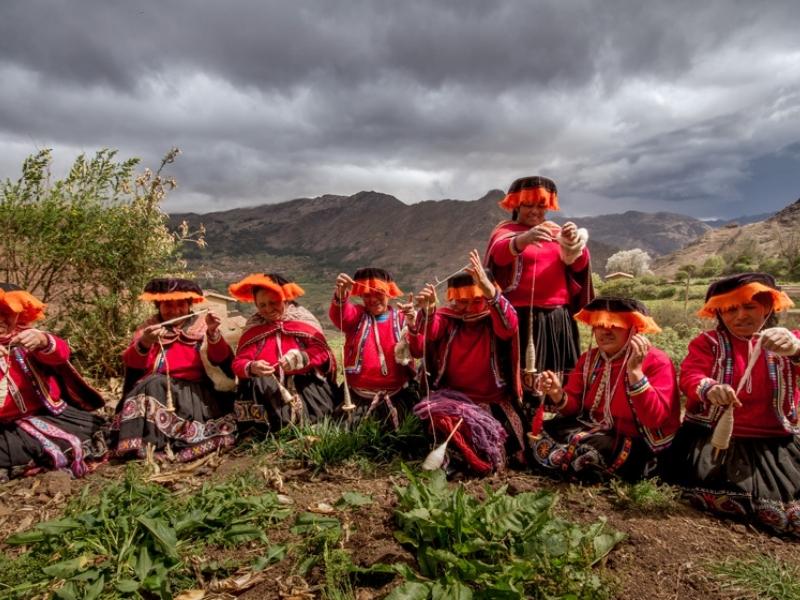
The Amaru community is located to the east of the Pisac District. The current population of the community is 200 families, which elect their maximum authority representative of the community for a period of two years. Their main economy is based on agriculture and livestock, as an additional income they offer to show their traditional activities to visitors, in this way they help the community to increase their activity and craft production. Planting, harvesting and agricultural work are closely related to offerings to Pachamama (mother earth) and Apus (gods and/or deities), with K’intuy being a ritual offered with coca leaves to their Apus, with Huanacaure being the most important mountain or Apu in Amaru.
The Amaru Community offers visitors its most important traditional activity, textiles. Showing the entire production process and making you a participant, from dyeing with natural plants, making wool and following the different steps until you get the final product. For lovers of ethnobotany, local people can teach their knowledge of natural plants as traditional medicine.
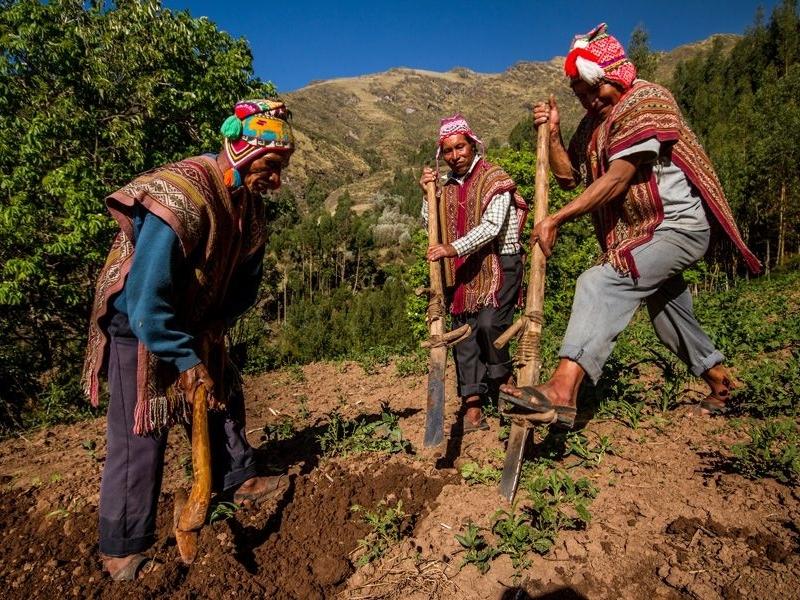
The Huayllafara Community has 40 families and approximately 200 inhabitants. Their main activity is agriculture and livestock, the heads of the family are fully integrated into the agricultural activity and the children in grazing.
It has an agricultural interpretation center, representing the 12 months of the year and exhibiting Andean instruments of traditional agricultural work. The main crops are corn, potatoes, beans, quinoa and tarwi among others.
The villagers will teach you the importance of agriculture, its cycles and its connection with Pachamama (Mother Earth) and her Apus (gods or deities).
Through rituals in which they offer their products, they show us the connection between man and Pachamama, celebrating its main festivities with music and dance.
Likewise, visitors will be able to use their traditional agricultural tools such as the chaquitaclla, useful among others, to practice traditional agricultural techniques.
Among its typical dishes is La haucha de Ullpu, prepared from the Ullpu plant that grows on the banks of the Carmen River.
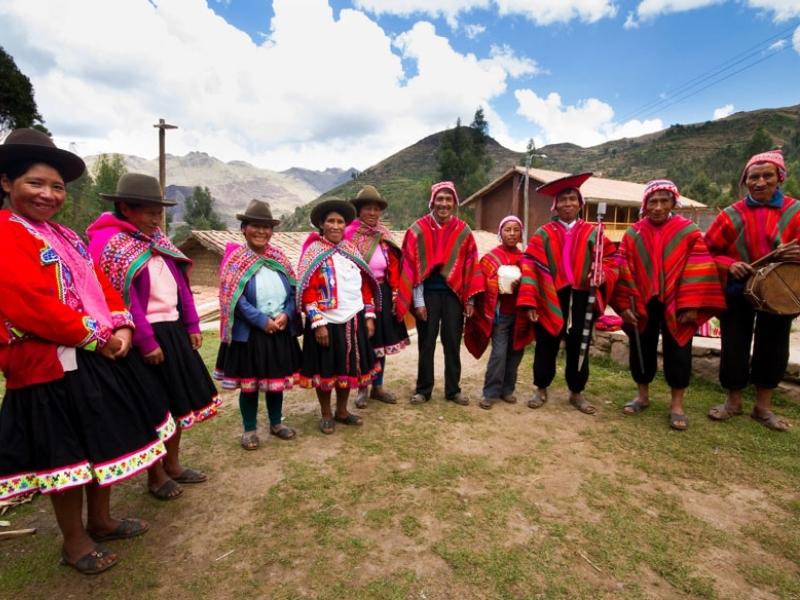
The main activity of the Community of Janac Chuquibamba is agriculture,
livestock and horticulture.
This community is characterized by its organizational model, by the good structure and order they manage. They maintain the same structure as their origins, which has the figure of El Varayoc, the highest authority who is elected for a period of two years, the Varayoc uses the pututo (seashell musical instrument) to call the most important meetings. .
The community, taking into account its customs and activities, has developed an interesting program to offer its visitors. One of their activities includes a short walk to the foothills of the mountain, where they make an interpretation of the benefits of the achupalla plant, a gift from their God Wiracocha. This plant is still used today as a traditional medicine and also to make tools, kitchenware, fuel, food for small animals and many other options.
Among its typical dishes stands out: The Cuy K’anca, which is a particular preparation of the guinea pig cooked in the stove. Its typical drink is Chicha de jora as in other communities.
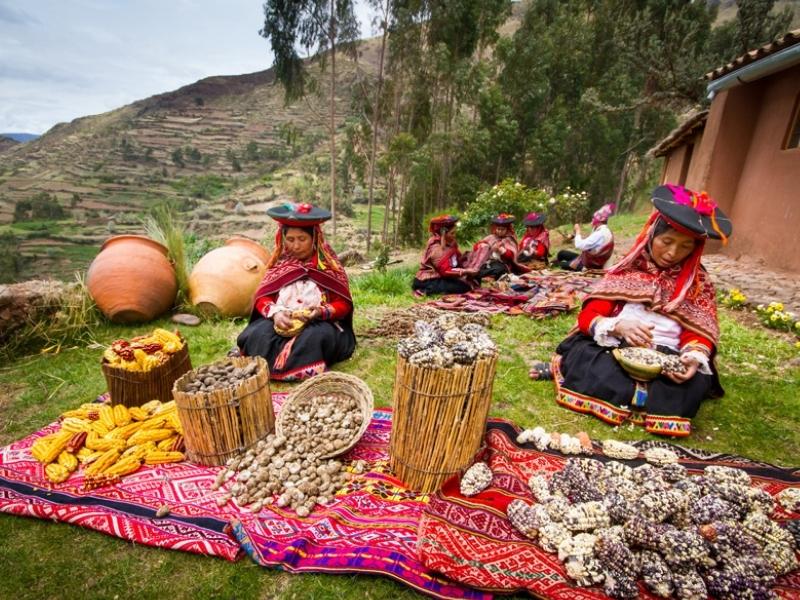
The Chumpe Community is made up of approximately 25 families.
Its main activity is agriculture, livestock with grazing llamas, alpacas and sheep. They are the ones who keep the knowledge of the connection between man, the Andes and the South American camelid. It also highlights the traditional textile activity with an iconography inherited from their ancestors.
As in most of the communities of the Sacred Valley of the incas, its first inhabitants were the machus, whom the Incas called Chumpi, which was later modified to Chumpe, a name that has remained until today.
The community maintains many of its ancient traditions such as festivals, in which the rites and cults of its natural deities, the sacred mountains, stand out. It also has beautiful landscapes such as the Pachar, Mochillay and Chinchaycocha lakes, among others, which make this community an interesting attraction to visit.
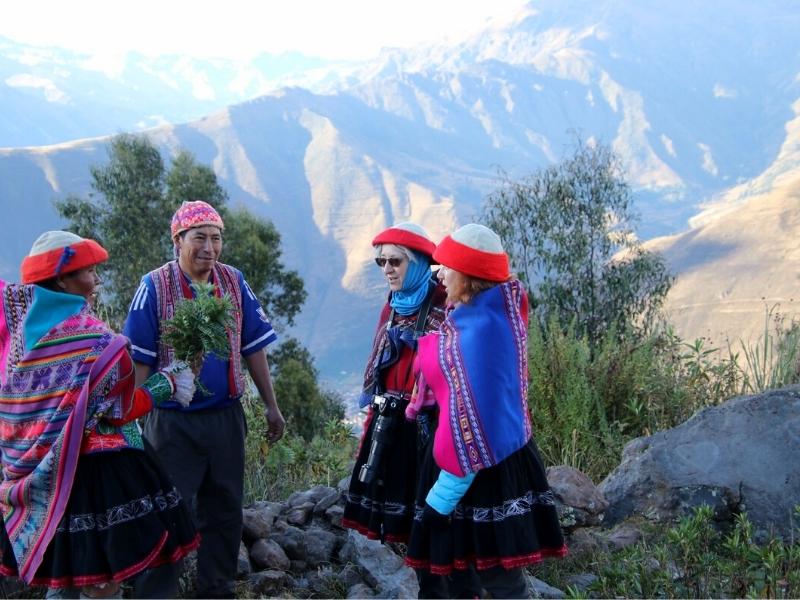
This community has approximately 200 families, its main activity is agriculture and livestock, grazing Andean camelids, sheep and cattle. Because of the extensive livestock they have, they are quite dedicated to textiles and handicrafts.
This community has a natural landscape viewpoint to the Sacred Valley of the Incas, called the balcony of the Sacred Valley. Its typical traditional dishes are Sancc’u (combined cereals with aromatic plants with salt and sugar) and cuy lawa (guinea pig soup). The typical drink chicha de jora, white chicha (quinoa with corn and beans).
The community maintains many old traditions such as festivities. The carnival that is between February and March, at this time the single women and men are the ones who collect flowers and celebrate the yunsas (party around a tree). Tradition of milestones or boundary with carguyoc or butlers between carnivals.
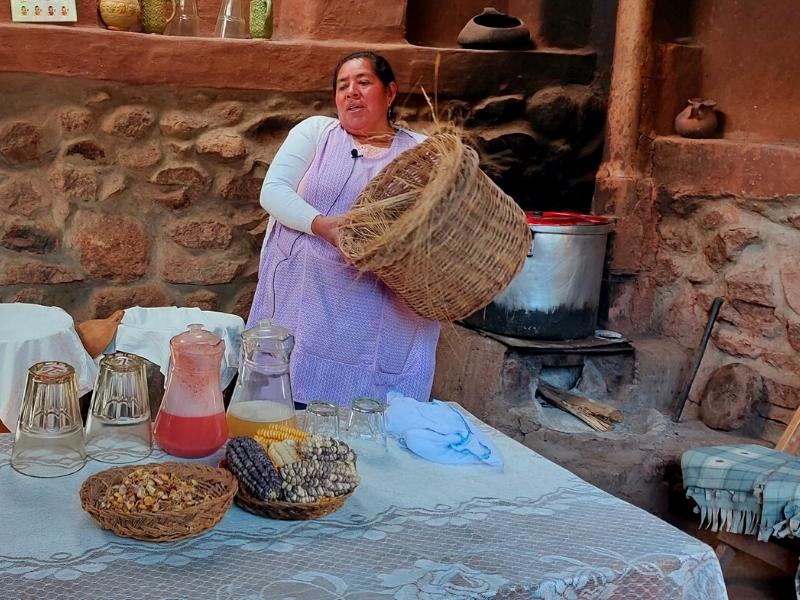
It has approximately 180 families, located next to the city of Urubamba and surrounded by a green countryside.
The agricultural activity is its main economic means, which is complemented by the raising of guinea pigs, bees, the elaboration of handicrafts such as ceramics and many others.
In Chichubamba, the visitor will have the opportunity to enjoy the great climate that it has, explore daily life, learning activities such as pottery, making artisanal chocolate, beekeeping (honey extraction), learn about the preparation of chicha de jora, the opportunity to taste it and the textile process among other activities.
Its most representative dish is suckling pig. Its traditional drink is the chica de jora, made with fermented corn and the strawberry drink.
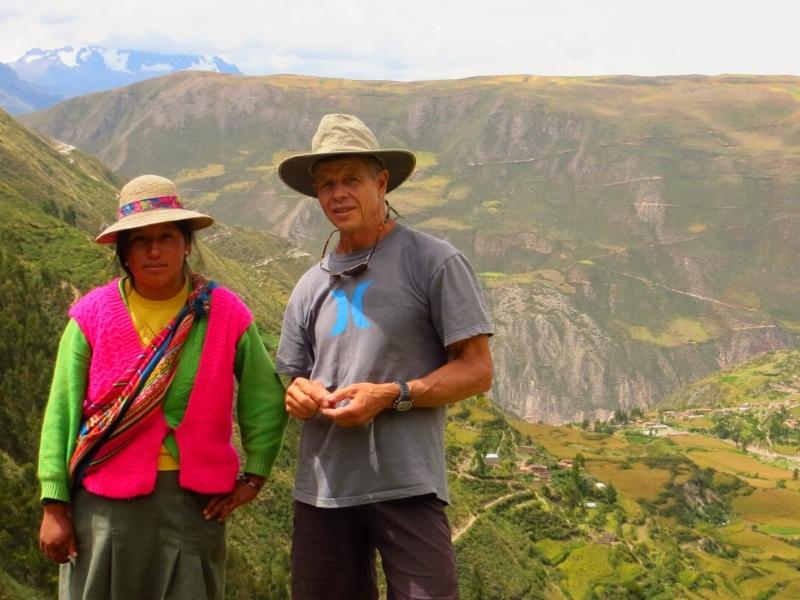
Its main attraction is the natural charm of the 50m-high Perolniyoc waterfalls, a 45-minute walk from the community of Socma and crowned by the pre-Inca archaeological remains of the same name. On the route to the falls you can see part of the network of the royal Inca trail or Qapacñan de los Incas.
In Socma they will teach us marble stone carving. The most representative food is La Merienda (food with corn, guinea pig, special tortilla). Their typical drink is chicha made from fermented corn, called: chicha de jora and chicha de frutillada.
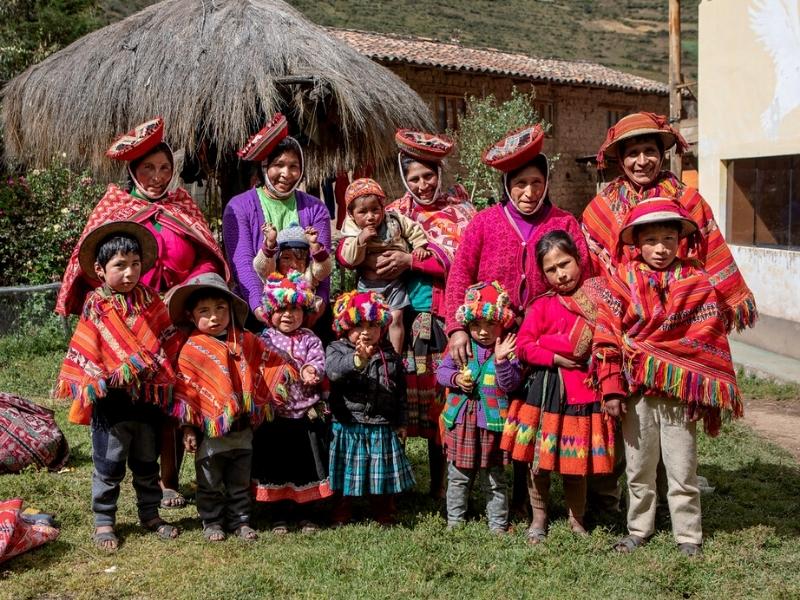
About 1.5 hours northeast of Ollantaytambo, you will find the captivating untouched village of Willoc.
Embracing ancient customs and lifestyles that are rarely seen in today’s world, a visit to Willoc is a journey into the past. Hence, it is here that you can steal a unique glimpse into community life, as well as witness a traditional weaving demonstration.
Weaving is a task vigorously practiced by the women of Willoc, so you will be watching true masters at work as you witness this mesmerizing ancient art form come to life.
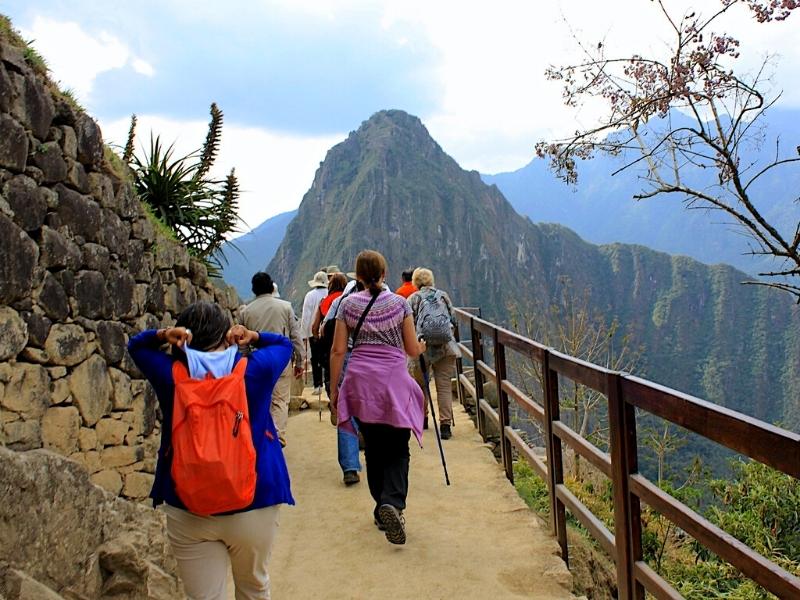
Get to know the majestic city of Cusco, cradle of the greatest civilization in South America, the Incas and their great works of engineering, the citadel of Machu Picchu by train.

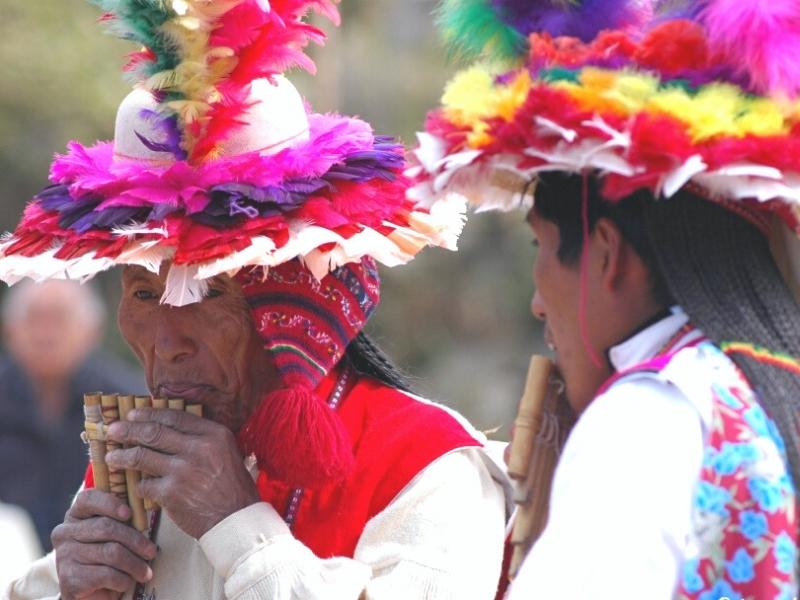
Sublime landscapes, wildlife, history, culture - Peru has more than its fair share. Its famed snow-capped Andean peaks shelter the temples and fortresses of the Inca and other pre-Columbian cultures, linked by a network of paved trails.

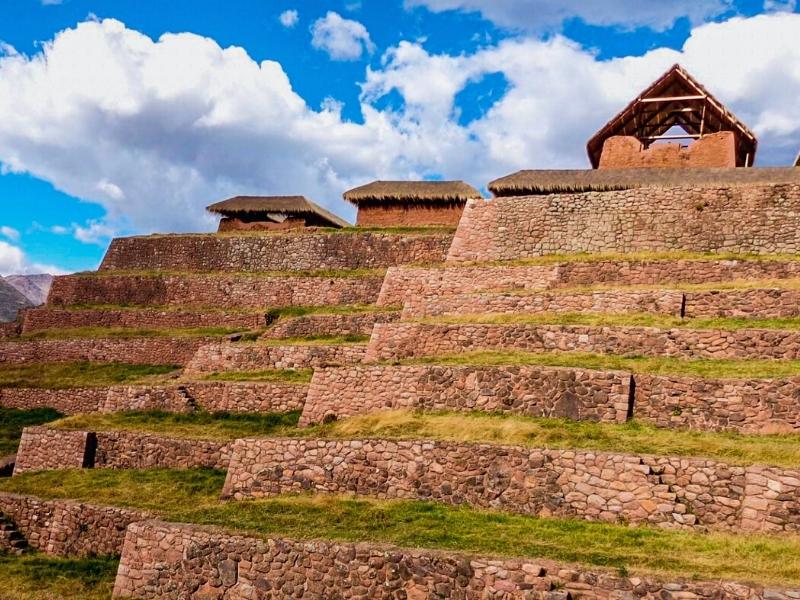
The walk to Machu Picchu along the Huchuy Qosqo route is one of the shortest in Cusco; It is made for people who do not have much time. But even so, they want to take a walking tour before reaching the great Inca Citadel of Machu Picchu. It is very ideal for people who like to enjoy nature, away from the hustle and bustle of the restless city.
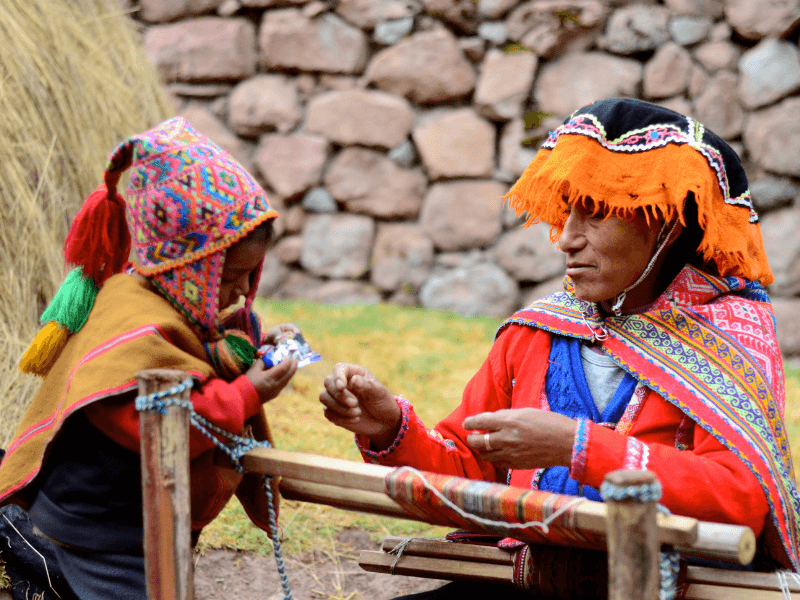
Embark on an incredible Cusco Andean exploration through Lares trek with a taste of the iconic Inca Trail to Machu Picchu, through the Sacred Valley of the Incas.
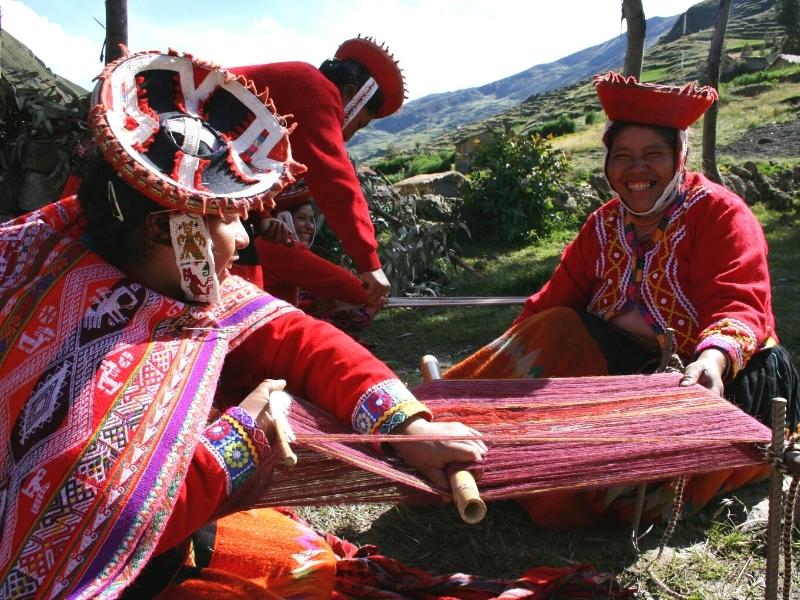
Explore the Lares Trek to Machu Picchu, this trip takes you to the heart of the Andes where few tourist have ventured, you will enjoy the Andean traditions and original indigenous villages, who are still keeping the incas traditions, imposing glaciers, green lakes, waterfalls, llamas and alpacas.
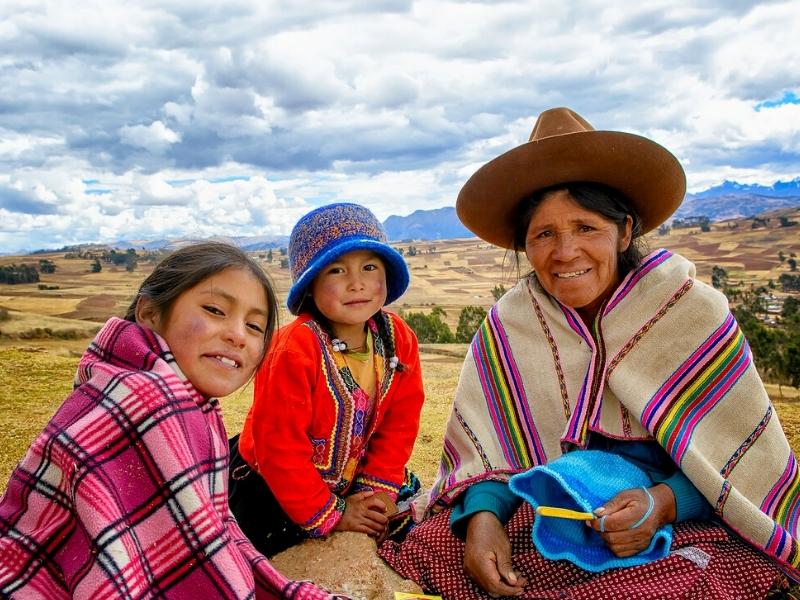
The top sights of Peru will leave all the family thrilled by the scenic grandeur, ruined temples, colonial cities, amazing inca trail to Machu Picchu, the Inca Lost City, once buried under the tropical forest which surrounds it.

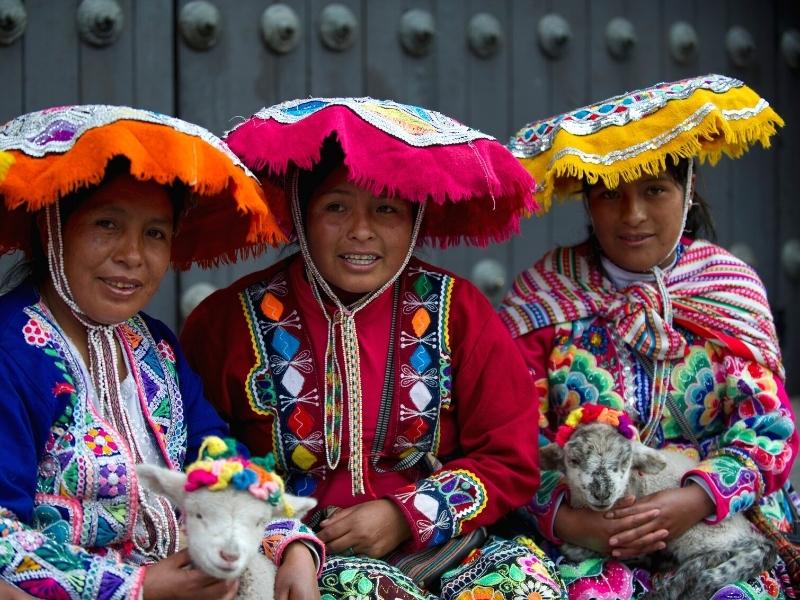
Enjoy the best vacations in Peru. Our Majestic Peru travel program will take you from the coast and its impressive Nazca lines, to the lodge in the Amazon forest surrounded by many wild fauna, you will travel the Inca trail to Machu Picchu, culminating your trip in Cusco.

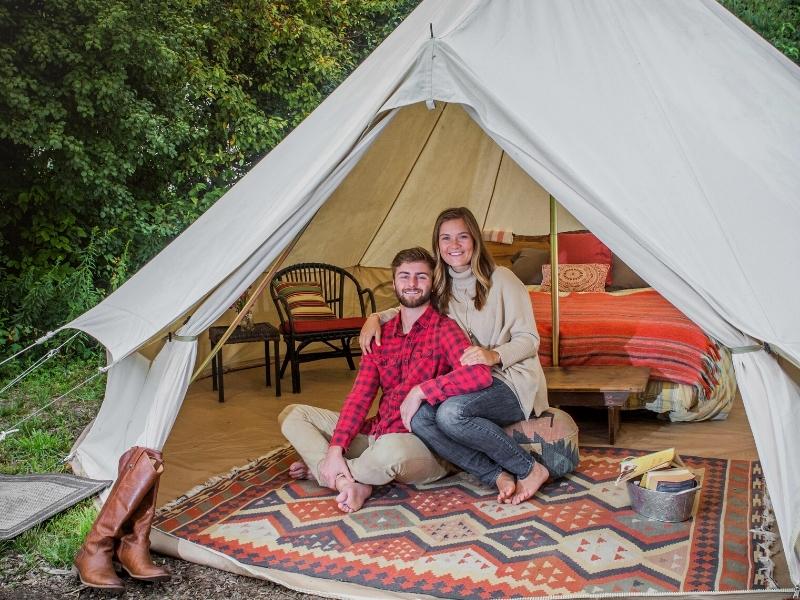
Your luxury trip to Peru includes a selection of Andean and Amazonian landscapes. We will help you to explore this welcoming and varied country, planning each step of your trip, with the best services. With the help of amazing expert guides, you can enjoy all that Peru has to offer, every detail is well taken care of.

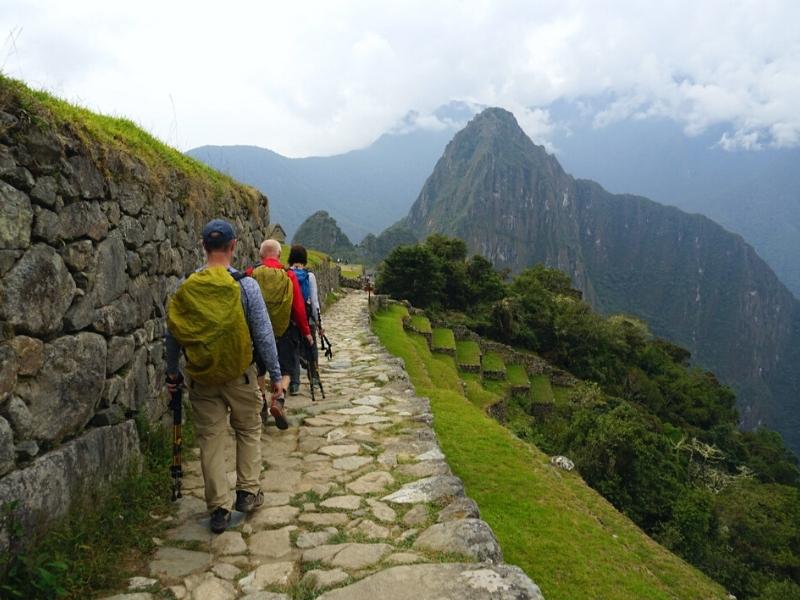
Discover the world wonder of Machu Picchu from the Sacred Valley of the Incas. Travel by train to the town of Aguas Calientes where you will spend a comfortable night enjoying the best Peruvian food.

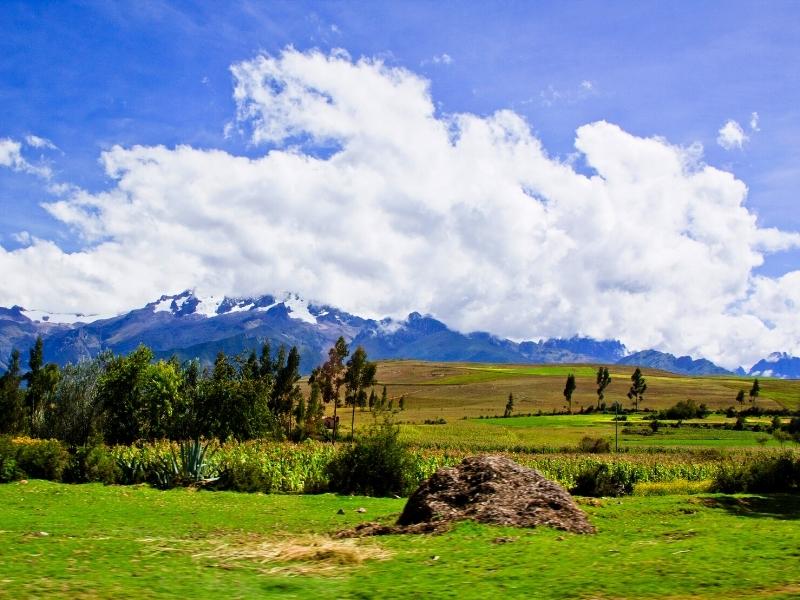
Explore the Sacred valley of the Incas, Visit the best archaeological remains of the Incas in Chinchero, Moray, Ollantaytambo and Pisac. Beautiful landscapes surrounded by snowy peaks and corn fields.
